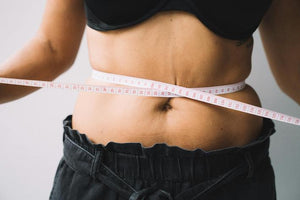Acne can be a very unpleasant and long-lasting affair. It can appear at different times in a person's life. Often it is related to fluctuations in hormone levels. For example, during puberty or even after stopping the birth control pill. However, acne can be treated and influenced in different ways. Your diet has a particularly large influence.
What influence does diet have on acne in general?
Acne is caused by various factors, such as increased sebum production (sebum is an oily substance that protects the skin from drying out) or inflammation. Although many factors seem to be beyond our control, diet is one of the main factors that influence the development and aggravation of acne. Studies show that acne is related to the Western diet. Two mechanisms are discussed that have the greatest influence on the development of acne.
- Inflammatory mechanism
- Insulin-like growth factor (IGF)-1 mechanism.
Since blood sugar and insulin are closely related, let's focus on the second mechanism - insulin-like growth factor. Certain foods are able to increase levels of insulin-like growth factor (IGF)-1, a hormone that controls the action of growth hormone (GH) in the body. Together, IGF-1 and GH promote normal bone and tissue growth. An uncontrolled increase in IGF-1 impairs metabolism, especially testosterone and fat metabolism. In addition, IGF-1 upregulates inflammatory responses.
What foods trigger the uncontrolled increase in IGF-1?
Foods that lead to high blood sugar levels cause IGF-1 to increase. Foods with this property are better known as hyperglycemic foods. Blood sugar spikes lead to both chronic and acute hyperinsulinemia. Hyperinsulinemia is the medical term for high insulin levels and activates a hormonal cascade that increases IGF-1 levels.
This mechanism suggests that foods that only slightly affect blood glucose levels contribute to the reduction of inflammation. Increased consumption of dairy products also appears to influence acne via IGF-1.

Our tips for reducing acne
Our recommendation: Eat frabjous, with a majority and wide variety of plant-based foods and especially foods that have a low impact on your blood sugar levels.
- Swap white pasta, white rice and white bread for whole grain alternatives.
- Reduce added sugars and processed foods
- Consume dairy products in moderation
- Avoid saturated fats, e.g. from animal products (butter, milk, meat, cheese)
- Avoid trans fats (chemically hydrogenated unsaturated fats, fried foods, baked goods, spreads).
- Alcohol in moderation
In brief
Acne is influenced by many factors, including diet. The mechanism of insulin-like growth factor (IGF)-1 triggered by hyperglycemic foods is an important factor in inflammation. Controlling blood sugar levels is key to reducing inflammation and preventing acne. To do this, choose a colorful variety of plant-based foods, swap white carbohydrates for whole grains, limit dairy, sugar and processed foods, and avoid trans fats and excessive alcohol consumption. Your diet can be an effective way to manage acne and promote overall health.





